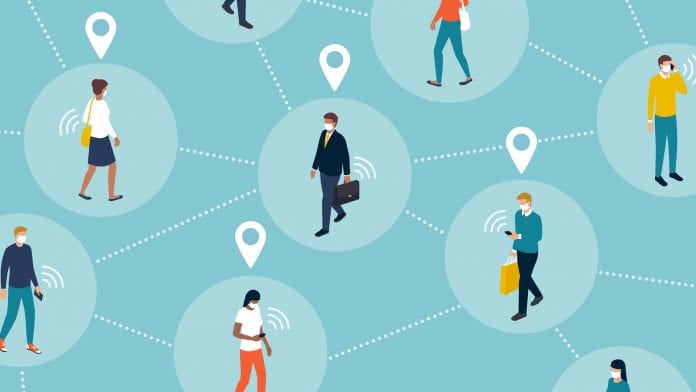
Contact tracing apps used to reduce the spread of COVID-19 are unlikely to be effective without proper uptake and support from control measures.
A new study from University College London has shown that COVID-19 contact tracing apps are unlikely to be effective at controlling the spread of the virus within communities without proper uptake and support from other control measures.
The systematic review provides evidence that the automated contact tracing system currently in use is limited, and that large-scale, manual contact tracing alongside other measures, such as supporting outbreak strategies and social distancing, as well as the closure of public places, such as pubs, will be needed to improve its success. The review also highlights concerns surrounding ethical considerations, noting that the app could increase risk for the digitally excluded.
The review looked at 15 studies and 4,000 papers on automated and partially automated contact tracing and has been published in the journal Lancet Digital Health.
Large-scale uptake needed
The review shows that there is insufficient evidence to justify reliance on automated contact tracing approaches without additional extensive public health control measures. The authors suggest that these automated contact tracing methods will still need to be used within an integrated public health response to prevent mass spread of COVID-19 within the community. This is applicable even under optimistic assumptions, say the researchers, where 75-80% of UK smartphone owners are using the contact tracing app, and 90-100% of identified potential close contacts initially adhere to quarantine advice.
Lead author Dr Isobel Braithwaite (UCL Institute of Health Informatics) said: “Across a number of modelling studies, we found a consistent picture that although automated contact tracing could support manual contact tracing, the systems will require large-scale uptake by the population and strict adherence to quarantine advice by contacts notified to have a significant impact on reducing transmission.
“Although automated contact tracing shows some promise in helping reduce transmission of COVID-19 within communities, our research highlighted the urgent need for further evaluation of these apps within public health practice, as none of the studies we found provided real-world evidence of their effectiveness, and to improve our understanding of how they could support manual contact tracing systems.”
Dr Robert Aldridge (UCL Institute of Health Informatics) said: “We currently do not have good evidence about whether a notification from a smartphone app is as effective in breaking chains of transmission by giving advice to isolate due to contact with a case of COVID-19 when compared to advice provided by a public health contact tracer.
“We urgently need to study this evidence gap and examine how automated approaches can be integrated with existing contact tracing and disease control strategies and generate evidence on whether these new digital approaches are cost-effective and equitable.”
Ethical concerns around COVID-19 contact tracing
The authors also raise concerns around privacy considerations and say that decision-makers should thoroughly assess available evidence around its effectiveness, privacy, and equality considerations.
Dr Braithwaite added: “We should be mindful that automated approaches raise potential privacy and ethics concerns, and also rely on high smartphone ownership, so they may be of very limited value in some countries. Too much reliance on automated contact tracing apps may also increase the risk of COVID-19 for vulnerable and digitally-excluded groups such as older people and people experiencing homelessness.”










